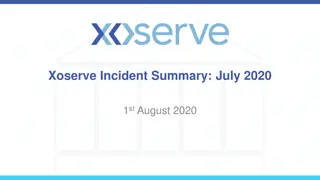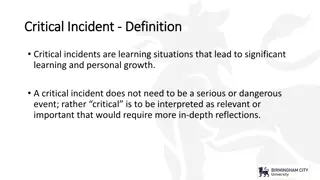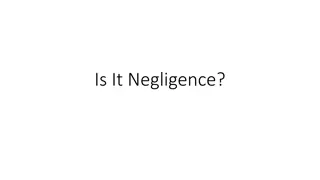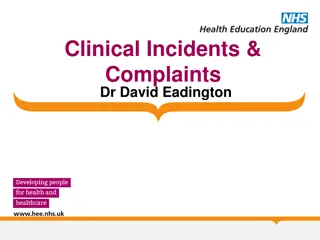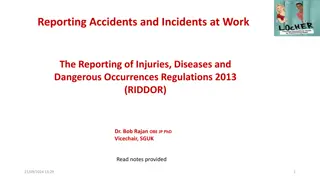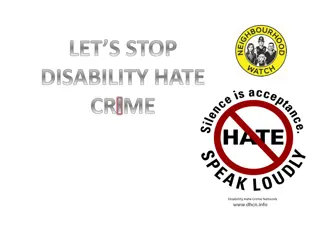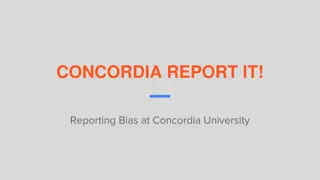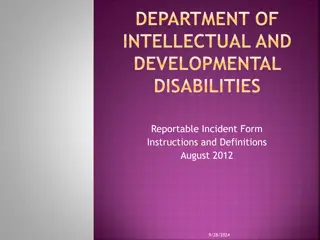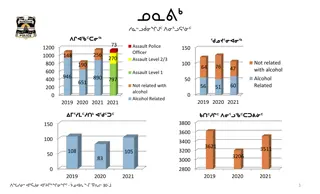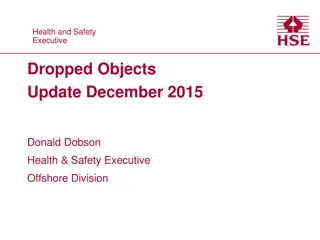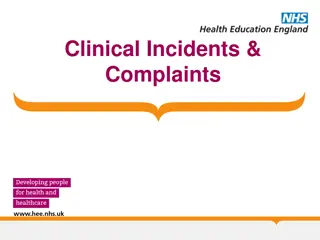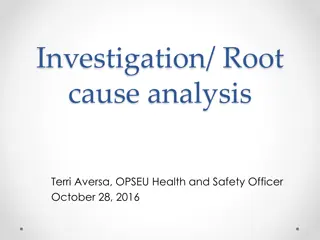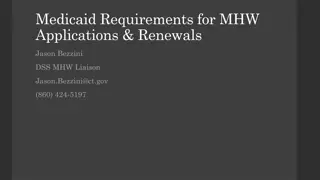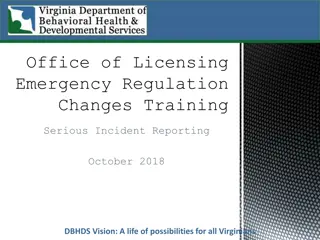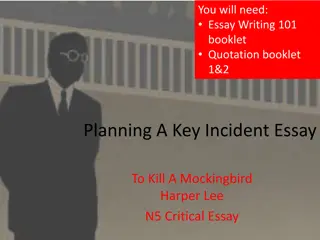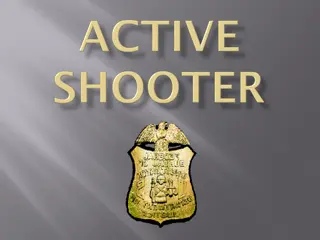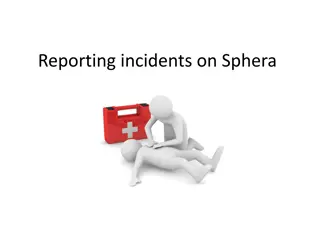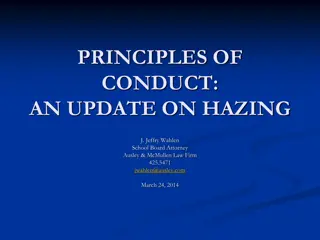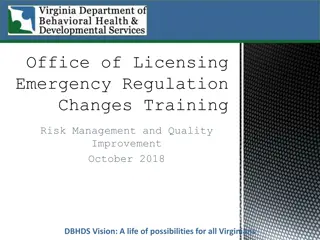Understanding Critical Incidents in MHW Programs
A Critical Incident (CI) in MHW programs refers to incidents with serious impacts on participants, staff, or facilities. Examples include death, threats, abuse, and more. Timely reporting is crucial to ensure proper handling and avoid disciplinary actions. Specific reporting forms and guidelines are provided for accurate documentation and response coordination.
Download Presentation

Please find below an Image/Link to download the presentation.
The content on the website is provided AS IS for your information and personal use only. It may not be sold, licensed, or shared on other websites without obtaining consent from the author. Download presentation by click this link. If you encounter any issues during the download, it is possible that the publisher has removed the file from their server.
E N D
Presentation Transcript
MHW CRITICAL INCIDENTS Presented by: Ann Marie Luongo, Program Manager for MHW, ABH
Critical Incidents (CI) - what are they? A Critical Incident (CI) is defined as: An incident that may have a real or potential serious impact on Waiver participants, staff, facilities, funded agencies, or the public or may bring about adverse publicity.
Critical Incidents (CI) - Examples Examples of CI include but is not limited to: death; suicide (including attempts); threats to self or others; abuse/neglect/exploitation of client; missing persons; involvement of emergency services/law enforcement (EMTs/Fire/Police); criminal activity (perpetrator/victim/witness, etc.); incarceration falls (even if client refuses medical treatment) ANY unplanned medical treatment (ED visits, inpatient treatment, SNF stays both medical & psych!) medication errors (wrong meds, not taking meds, out of meds, etc.) property damage unusual client behavior (suddenly manic? paranoid? selling all their possessions? etc.) When in doubt? Submit one anyway!
Critical Incidents (CI) Timely Reporting Please submit written report to ABH within one business day of becoming aware of incident occurring Fax to 860-920-4456 attn: Critical Incident E-mail to MHWcriticalincident@abhct.com Untimely reporting may lead to disciplinary action up to and including a corrective action plan and/or placing the provider agency on hold.
Critical Incident section on ABH website
Critical Incidents (CI) The Form Must complete all sections: Date Report is completed Person reporting Contact information (phone & e-mail) Agency name (should not be ABH) Date & Time of Incident Location of Incident Client Info (name, DOB & WOS ID) Client s role in the incident Incident Category (please check one)
Critical Incidents (CI) The Form (cont.) Any substances present? Media attention likely? Narrative First Provider notified is expected to complete the form, whether or not they were present at time of incident. Collaboration with another agency to gather information may be required.
Critical Incidents (CI) Narrative Be thorough but concise Include any relevant details If a medication error: Which meds? How long without meds? What led to the error? Is it resolved? If a hospitalization: Was client admitted? Were they discharged? What s the plan for follow up care/monitoring? If a staffing issue: Which staff were involved? Which agencies? Has the issue been resolved? Has staff been reassigned, reprimanded, or terminated? Write in the third person Refer to MHW participant as client or use their name. Use proper spelling & grammar Give facts not opinions/impressions ( client was rude , called me out of my name ) Write legibly better yet, TYPE. Reports which are incomplete, illegible or offer insufficient detail will require follow-up
Critical Incidents (CI) Narrative (cont.) Example of a strong narrative: Writer received a call 1) from [client] who reported that 2) on Tuesday (10/9/18) while 3) at the laundromat, he 4) had a stroke and was reportedly 5) brought to HH by a Good Samaritan. [Client] reported that 6) he "signed himself out" of the hospital last night (10/11/18) because he "did not like the care there" and was driven home by a friend. 7) Writer prompted [client] to schedule a follow-up appointment with his neurologist and will ensure that CSC and CSP are aware of incident. 1) Who reported? 2) When did incident occur? 3) Where did incident occur? 4) What happened? 5) Was client hospitalized? How transported? 6) Was client discharged? When? 7) Follow up?
Critical Incidents (CI) Narrative (cont.) Example of a weak narrative: Client doesn't know how he broke his foot. He may have broke his foot when he walked to his mailbox barefoot. That is just a guess. The client was the only person at the scene. He identified the problem in his apartment. Was client hospitalized? If so was he admitted? What is client s current status? What steps are being taken to obtain additional information? What is the plan for follow up care?
Critical Incidents (CI) Follow Up Reported to & reviewed by DMHAS leadership on a weekly basis Monitored for trends (current trends: falls & med errors) Certain cases flagged for follow up Clinician notified in order to reach out to Providers Providers may need to gather additional information and/or provide intervention as needed Provider reports back to clinician with updates Clinician reports back to leadership with updates If not resolved within two weeks, additional follow up/intervention will take place
Critical Incidents (CI) CONNIE Process Notifications are received for every client hospitalization Hospital log is updated with relevant info (admission/discharge) ABH notifies CSP & CSC of update in hospital log CSP investigates hospitalization and submits a CI report regarding incident if one has not already been filed CI report is then processed as usual Timely reporting (one business day) is still expected for CI reports documenting these hospitalizations CSP is expected to investigate and report, even if not present for incident
Questions? Contact for Critical Incident Reports: Laura Biggs lbiggs@abhct.com 860-704-6182




